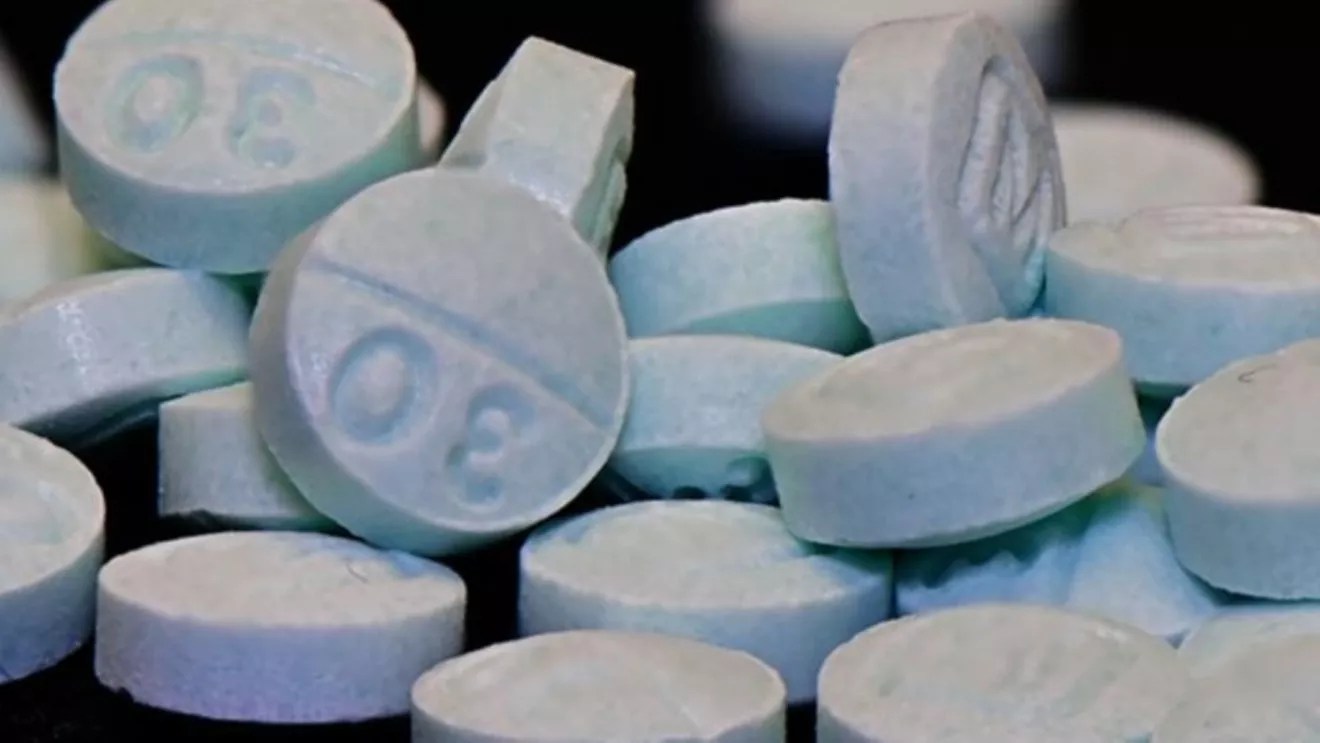

Audio By Carbonatix
In 2022, the Colorado Legislature passed House Bill 22-1326, Fentanyl Accountability and Prevention, which the governor signed into law. Among its many provisions, the law enhanced criminal penalties for fentanyl possession by making possession of one-to-four grams of drugs that contain fentanyl or fentanyl analogs a level 4 drug felony, rather than a misdemeanor. This enhanced penalty provision took effect immediately in July 2022 while other provisions, such as increasing treatment availability in jails and disbursement of harm reduction-related funding, were implemented later. My research lab was selected to lead an independent study to understand the health effects of the criminalization provision, including overdose deaths and medication for opioid use disorder (MOUD).
We set out to accomplish three main objectives in our study, the results of which were published on the Behavioral Health Administration website on January 20. First, we aimed to estimate the health impacts of the change in criminal penalties associated with synthetic opioids on overdoses and initiation and retention on MOUD such as methadone and buprenorphine in Colorado. Second, we evaluated trends in felony charges associated with synthetic opioids in Colorado. Third, we worked with a diverse array of stakeholders across the state to understand the intersection of justice involvement and substance use disorder (SUD) in Colorado.
Let’s start with what we found regarding overdoses and MOUD uptake. While the prevailing narrative at the time of the bill’s passage was that it was necessary to “save lives,” prevent overdose deaths and increase uptake onto MOUD, our findings do not support that hypothesis. We used data from the Colorado Department of Public Health and Environment and the Behavioral Health Administration as well as several different methodologic approaches and found the following: First, there was no decrease in overdose deaths at the population level compared to what we would have expected without the existence of the bill. Second, there was no improvement in buprenorphine initiation or retention than what we would expect without the bill. Finally, there was a drop in methadone uptake and retention following the bill. Overall, we found no evidence to support the claim that this bill saved lives.
Next, we were tasked with understanding the trends in felony charges associated with synthetic opioids. We received data from the Department of Corrections on individuals convicted of felony drug charges that resulted in prison sentences. Overall rates of opioid possession-related convictions remained relatively stable from 2020-2024. Rates of opioid possession-related convictions were the highest among the Non-Hispanic Black population, followed by the Hispanic population, with the Non-Hispanic White population experiencing the lowest rates. Our findings here are consistent with previous work that non-Hispanic, non-White populations are disproportionately impacted by drug criminalization, though they are not more likely to be in possession or

Zylazine makes fentanyl even more deadly.
Getty Images
planning to distribute narcotics than White individuals.
Finally, we performed comprehensive qualitative work with community members across the spectrum of experience including people with lived experience, policymakers, legislators, health-care providers and law enforcement. Among our participants, there was overwhelming consensus that increasing criminal penalties for fentanyl possession is misguided and that jails should provide treatment for SUD, but that incarceration is not an appropriate response for addressing them. There was less consensus on the roles that police and law enforcement should play in addressing SUD.
Based on our work, it appears that increasing criminal penalties for drug possession – including fentanyl – is not an effective solution for our state. It is not an effective solution if the end goal is to decrease overdose deaths. It is not an effective solution if the goal is to get more people on treatment. It is not even an effective solution if the goal is to incarcerate more people. Criminal penalties for drug possession do not work for our state.
Why does all of this matter in the current environment? On January 8, SB25-044, Synthetic Opiates Criminal Penalties, was introduced for consideration and is scheduled to be heard on February 10 in the Judiciary Committee. This bill creates even harsher penalties for drug possession. Furthermore, ballot initiatives to enhance criminal penalties for fentanyl are in the works. While I can understand the desire to “act,” given that we continue to fall further into the overdose crisis, evidence from our own state suggests that such measures will not be effective and that they are not a good use of taxpayer dollars. Importantly, our findings demonstrate that there is broad consensus that criminal penalties are a misguided approach to addressing the crisis. Results of hundreds of hours of interviews and focus groups across the political and social spectrum suggest that instead of further attempts to criminalize drug use (and poverty), we need strategic allocation of funding for treatment and prevention, to lift up and support culturally-aware community-based services, and strategies that strengthen community relationships with law enforcement.
Our work was funded to provide lawmakers, government officials and community members with initial results regarding population-level health outcomes after the passage of HB22-1326 and to inform future decision-making. With the introduction of SB25-044 and the looming ballot initiatives, that future is now. I hope that our work highlights the fact the overdose crisis is a public health crisis that needs to be solved with public health solutions that are grounded in evidence-based solutions intertwined with compassion and empathy for our fellow humans. Criminalizing drug use is not an evidence-based public health approach.
Dr. Josh Barocas is a clinician-scientist and associate professor of medicine at the University of Colorado School of Medicine.
Westword.com frequently publishes commentaries on matters of interest to the community; the opinions expressed are those of the authors, not Westword. Have one you’d like to submit? Send it to editorial@westword.com, where you can also comment on this piece.
..